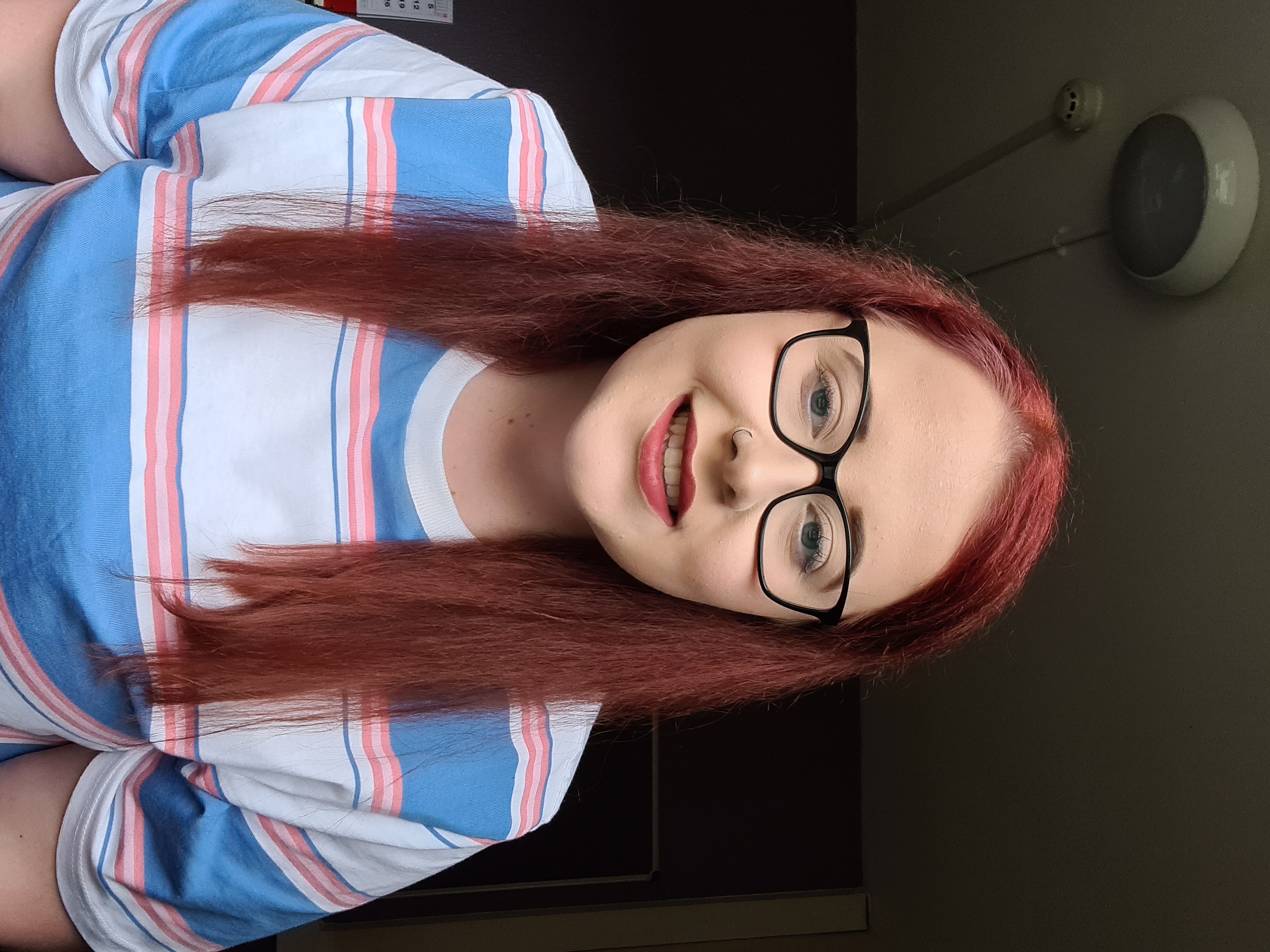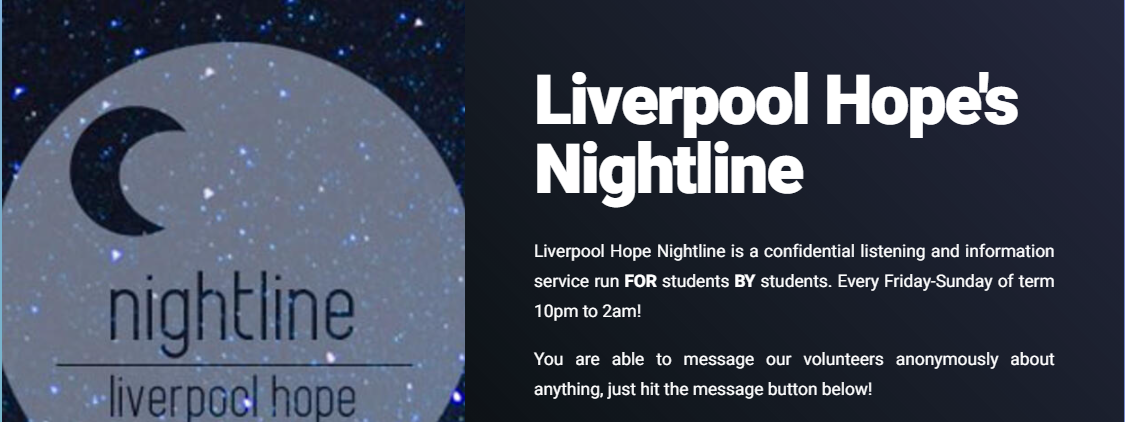A Liverpool Hope University graduate has revealed how her work with the ‘Nightline’ student listening service has helped shape her future career plans.
The Nightline Association is a national, anonymous student wellbeing initiative that’s run by students for students.
Trained volunteers typically answer calls, emails, instant messages, texts and talk in person to other students about anything that’s troubling them, from loneliness and depression to exam stress and anxiety.
At Hope, the Nightline is available Friday through to Sunday, from 10pm to 2am, and can be accessed here: https://liverpoolhopenightline.carrd.co/
Niamh Gallagher, who graduated last year, joined Hope’s Nightline as a listening volunteer in 2019 when it was first set-up by Law student Niamh Fearon.
The 22-year-old, who was also a Senior Resident Tutor at Hope until March 2021, had to ‘completely reinvent’ the Hope Nightline operation to ensure volunteers could still operate remotely through Covid-19 restrictions.

And while Niamh studied for a degree in Primary Education, she says her involvement with Nightline has been so formative she now plans to work with children and adolescents on their mental health development, as opposed to traditional classroom teaching.
Niamh, from Magherafelt, County Derry, Northern Ireland, explains: “I am so passionate about Nightline. I started as a volunteer but ended up working as the Managing Director.
“And we know that students both use the service and also really appreciate it.
“While I may have studied as an undergraduate in Primary Education, my experiences with Nightline have actually directed me towards a career helping children and adolescents with mental health.
“In my role with Nightline, and as an SRT, I saw just how important mental health support is for young people. As a student myself, I also had times where I struggled with my wellbeing.
“And I want to be able to go into schools, armed with the knowledge I have and the resources I’ve created, and try to make a difference. I’ll still be going into classrooms, but not as a traditional primary school teacher.”
Niamh says the Nightline volunteers undergo extensive training that includes talking about money worries, health and disability, stress, friendship issues, homesickness, alcohol and drugs issues and suicidal ideation.
Because of the anxieties caused by the Covid-19 pandemic, the group of Nightline volunteers at Hope actually grew from a dozen to around 35 in order to meet a higher demand.
And it was at this point in time that Niamh recognised that the system needed to change in order to encourage more people to come forward and get their worries off their chest.
Niamh, who is currently working as a Covid-19 Vaccine Call Handler for the NHS, explains: “We needed to change things up and move from telephone calls to instant messaging. We had to completely reinvent the entire service.
“We not only needed to look after our volunteers by allowing them to work remotely, to reduce the risk of Covid-19 transmission, but there were also anonymity implications to consider.
“Instead of having to pick up the phone, now students can simply click on a weblink and type directly into a chat box. And we’ve seen a lot more students using the service since this was implemented.
“With us being such a compact university, there was always the chance that a volunteer might actually recognise someone’s voice, and we clearly need to protect people’s privacy.
“The chat box format does just that, and also gives people the chance to relate everything they want to say without getting tongue tied on the phone, or blurting out something that they later regret saying.”
Niamh says that throughout the pandemic the topics being discussed by students and volunteers was highly varied, rather than being Covid-19 or isolation-related.
She adds: “Away from the pandemic, the stresses of normal, everyday life were still present.
“Students still had essays to write, they still had to go to class, and they still had friendship groups to negotiate.
“I like to think we’ve been able to support Nightline users through this difficult period. And the service will continue to offer this valuable service for all current and future students.”
** A video exploring Hope’s Nightline service has been put together by Level 6 Theatre and Performance students at St Helens College, which you can watch via the Hope Nightline Instagram page: https://www.instagram.com/hope_nightline/?hl=en



